Title: A Series of Unfortunate Events
Network: Netflix
Air Date: January 13, 2017
Genre: Drama
Please. I implore you to turn away now. Do not read a word of the misery which follows next, for no one could possibly enjoy reading about a series of unfortunate events concerning three intelligent and creative orphans. For those who are brave enough to stay on this page, though, just know that you have been warned.
For the uninitiated, A Series of Unfortunate Events is based on the best-selling book series by Lemony Snicket (David Handler). It is the story of the Baudelaire children- Violet, Klaus, and Sunny- and the great misfortune that follows them after learning their parents died in a fire, a fire that also consumed the entire Baudelaire mansion and their possessions. As for the great misfortune…well, that follows the children over the course of thirteen books.
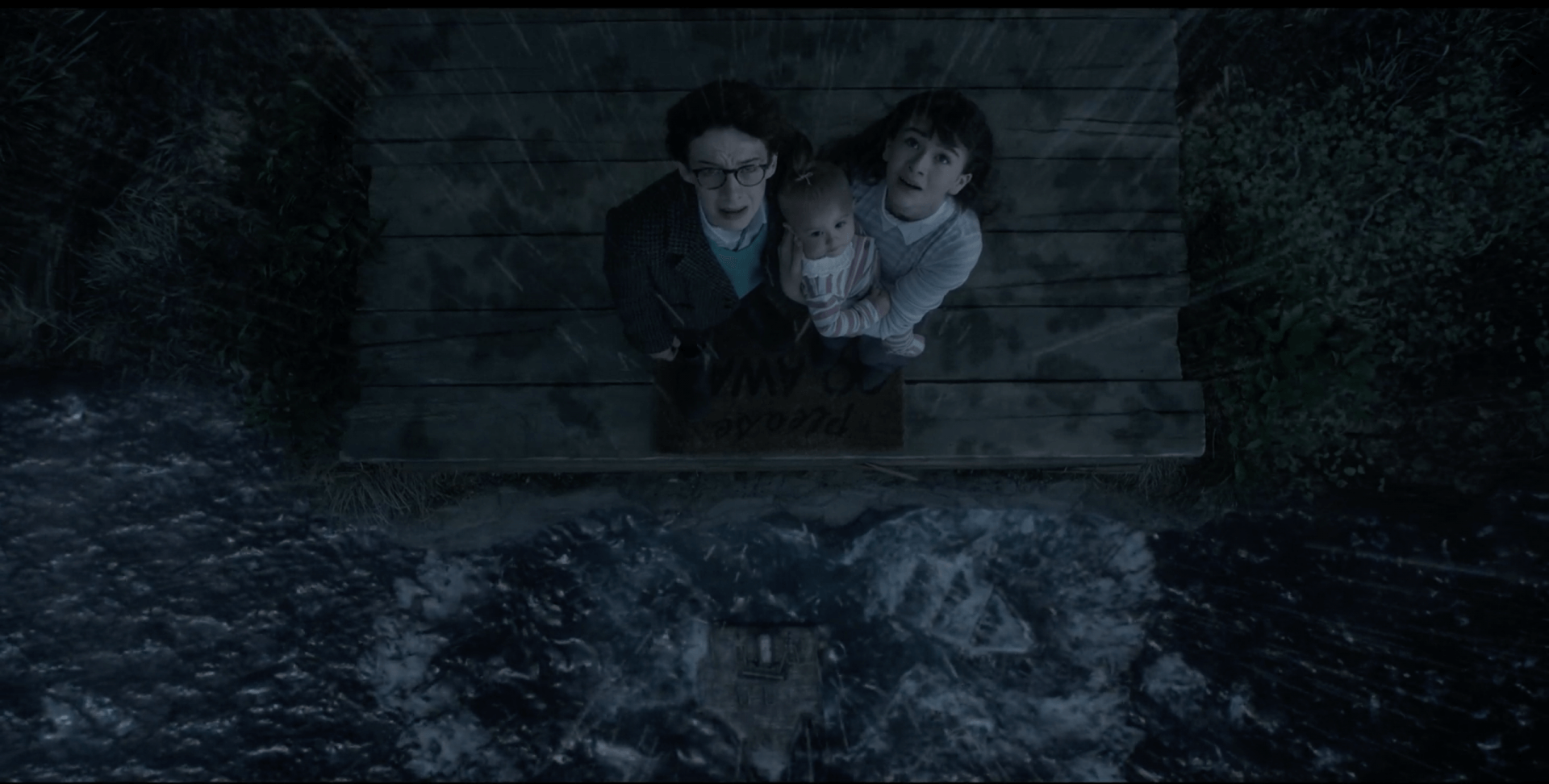
Violet is the eldest sibling at fourteen years old; unfortunately, though, she is not old enough to collect the large sum of money the Baudelaire parents left behind. What’s even more unfortunate is there isn’t a suitable guardian to take the children in while they wait for Violet to come of age.
From there we are introduced to Count Olaf, a horrible actor in need of some major housekeeping. He is also the villain of this saga (it’s impossible to get a name like “Count Olaf” if you’re not), and there is no length he won’t go to in order to acquire the Baudelaire fortune. Count Olaf soon becomes a looming shadow in the children’s lives, showing up at the worst possible moments with a plan even more devious and outrageous than the last.
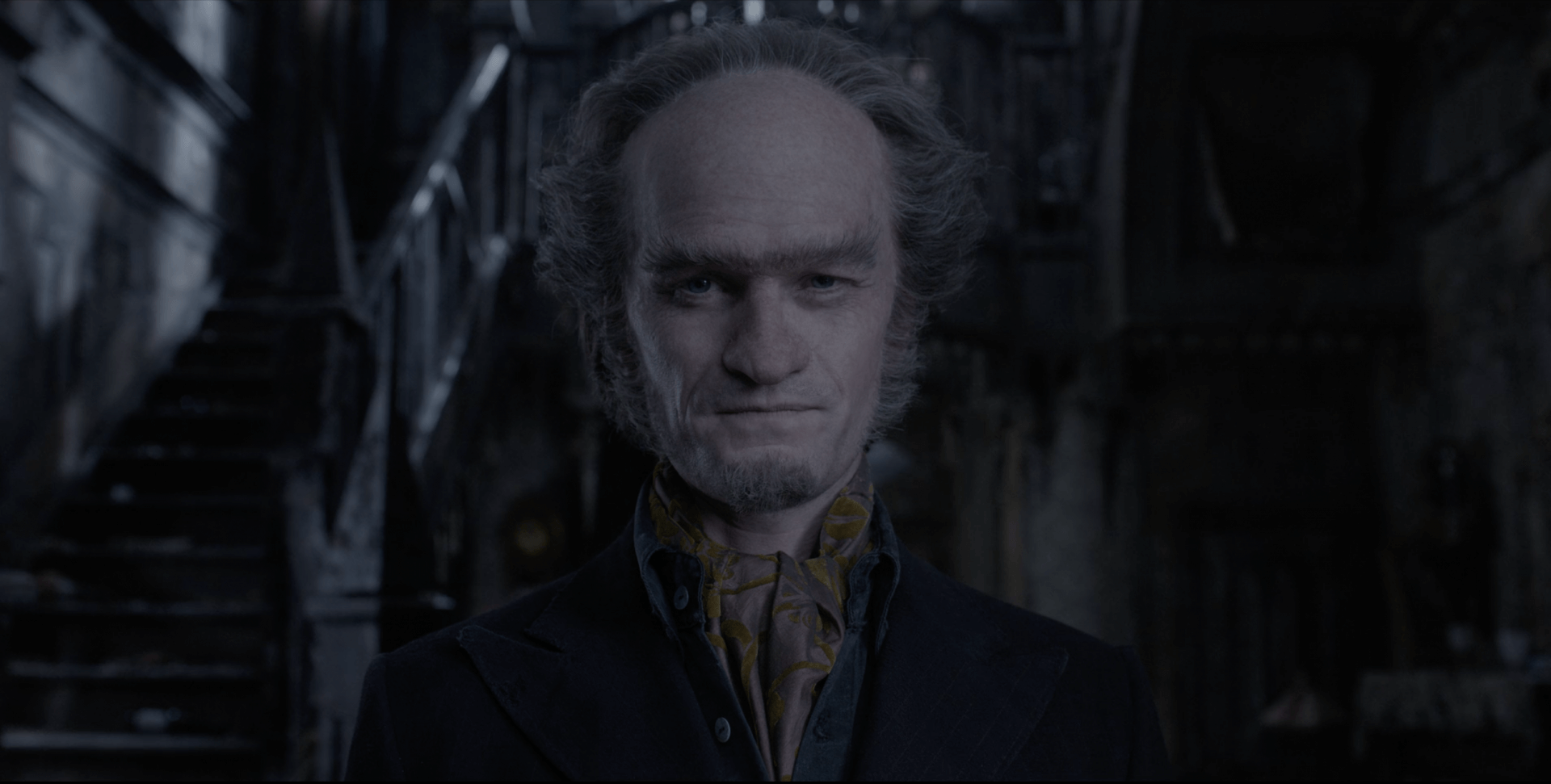
If you are a fan of the books, you will most certainly love the show.
Netflix broke the series up so that the first season covered the first four books- The Bad Beginning, The Reptile Room, The Wide Window, and The Miserable Mill. Each book was then broken down into two episodes, with a run-time of approximately forty minutes each. It was a smart move because the attention to detail in every single episode was outstanding, and the series was allowed to come to life and breathe in a way that the 2004 movie with Jim Carrey had not.
I won’t digress too much, but the 2004 movie compressed the first three books into ninety minutes. It was a decision that ultimately did not capture the depth of what this expansive story had to offer. Carrey did the character of Count Olaf little justice, with too many ill-timed moments of humor that did not align with the seemingly morbid story that was trying to be told. Netflix learned from the mistakes of the film, however, and gave both fans and newcomers, as well as viewers young and old something they could enjoy.
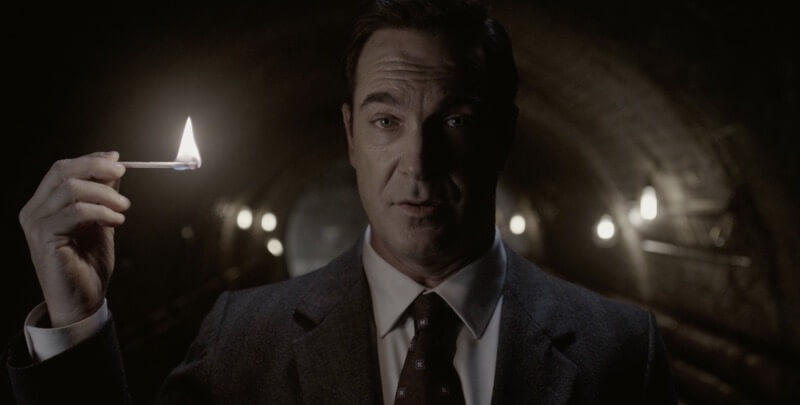
Patrick Warburton plays writer, narrator, and simply all-around “bearer of bad news”, Lemony Snicket in the show. His narration was spot-on with how the books were written. Everything from the consistent use of defining vocabulary words (a staple throughout the books), to delivering awful news with a completely straight face, Warburton’s portrayal gave the audience someone we could comfortably latch onto and identify with in the midst of such a bleak tale. Where the show also succeeded was not being afraid to insert Warburton into the scene or have him interrupt it at any given moment to explain what was happening with the children internally, as well as the unfortunate events that lie ahead.
The Baudelaire orphans are as intelligent as they are kind, and the kids who play Violet (Malina Weissman), Klaus (Louis Hynes) and Sunny (Presley Smith) fell into their roles with ease and had a natural chemistry on screen that you’d expect of real-life siblings. Their impeccable casting made for seamless performances that were strong from the first episode, but by the end of the Miserable Mill: Part II they will have you convinced that they are Violent, Klaus, and Sunny Baudelaire.
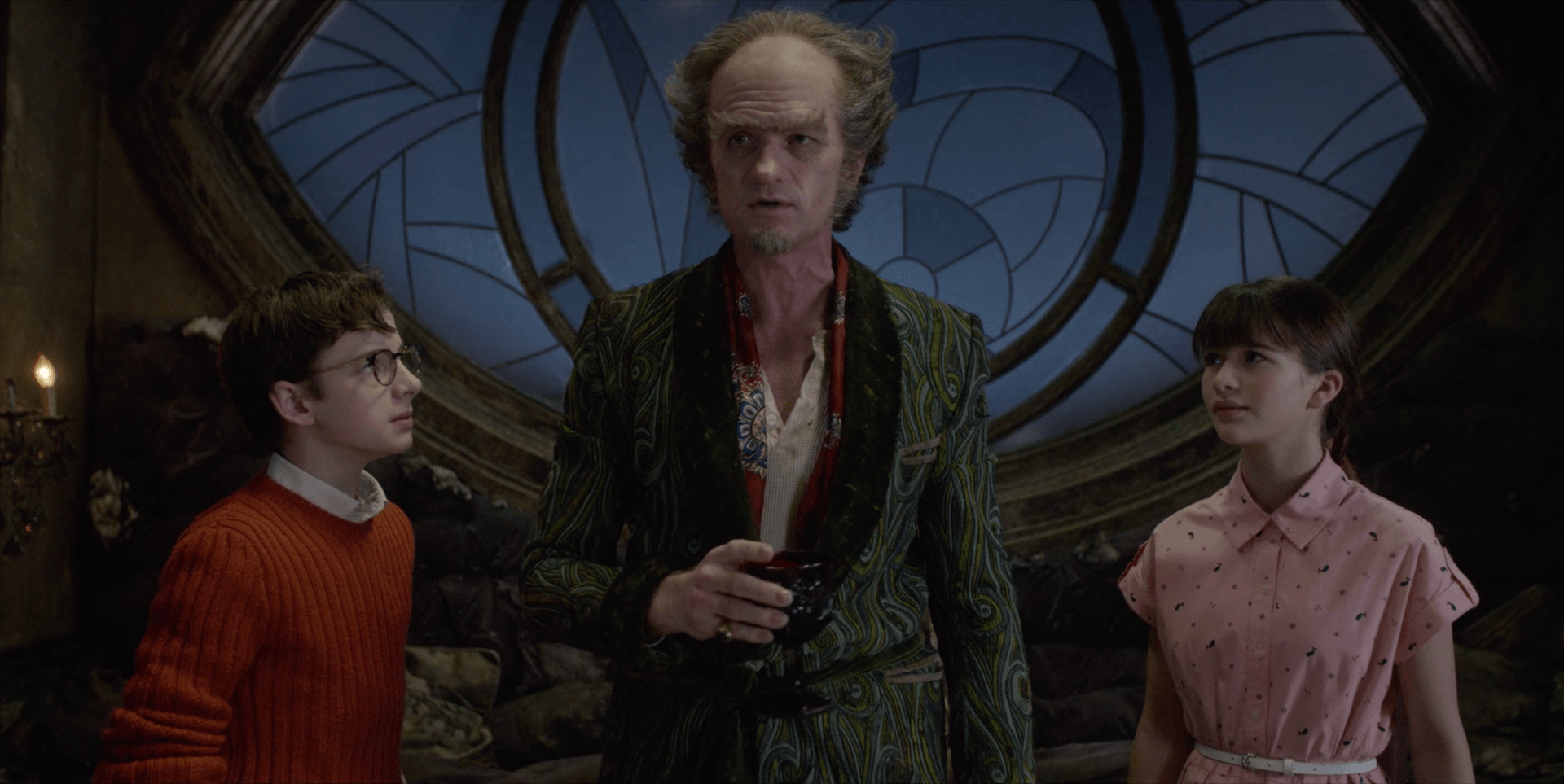
If you have never read the books, you will (probably) love the Netflix show.
A Series of Unfortunate Events does a wonderful job of balancing the serious problems concerning child welfare and endangerment by using extremely over-exaggerated situations and laughably incompetent adults to address them. This is seen with Mr. Poe, played by K.Todd Freeman, who dismisses the Baudelaire children’s concerns and safety in every episode despite the abundantly clear logic before his eyes telling him to do otherwise. But it is with Neil Patrick Harris, who plays Count Olaf, that we see that balance of the serious and the humor being maintained.
Patrick-Harris is excellent as Count Olaf in every one of the eight episodes and never holds back when the scene calls for humor, dramatics, or purely villainous actions. Pick an episode- any episode- and it is evident that he is having a great time playing Count Olaf and pushing the range of this character to the limits. Patrick-Harris is more than enjoyable to watch and brings life to each scene.
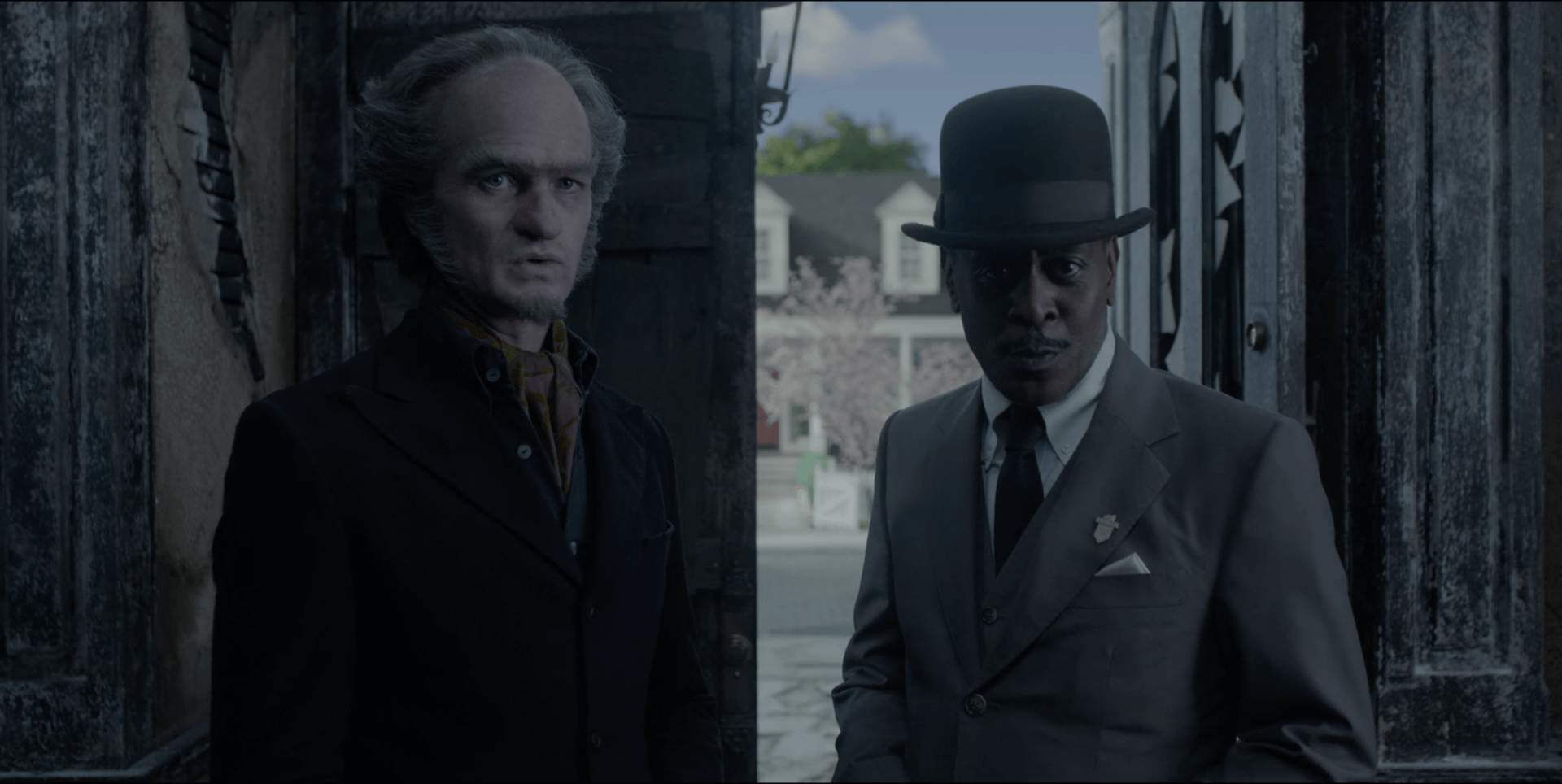
Even in the midst of all the humor (some of it light, some not so much), it is with an undeniable skill that he is still able to keep Count Olaf in-line with the grim reality on which the show has set its foundation. However, it was difficult to overlook how completely not-menacing he was in some of the episodes. I never felt afraid or had any sense of unease for the Baudelaire children because of Olaf, but rather I was more intrigued to see the tools they would come up with in order to escape.
Like most forms of fiction, though, the level of enjoyment can be contingent on the ability to suspend disbelief. Every situation the Baudelaires found themselves in could have easily been resolved if just one adult held even a small grain of common sense. Once you’re pulled into the show it could be easy to forget that, though, and some scenarios could be downright frustrating to watch. I’m a long-time fan of the books, so after three episodes I was not anticipating the infuriating sentiments I had while watching the children’s struggles actually play out on screen versus reading about them.
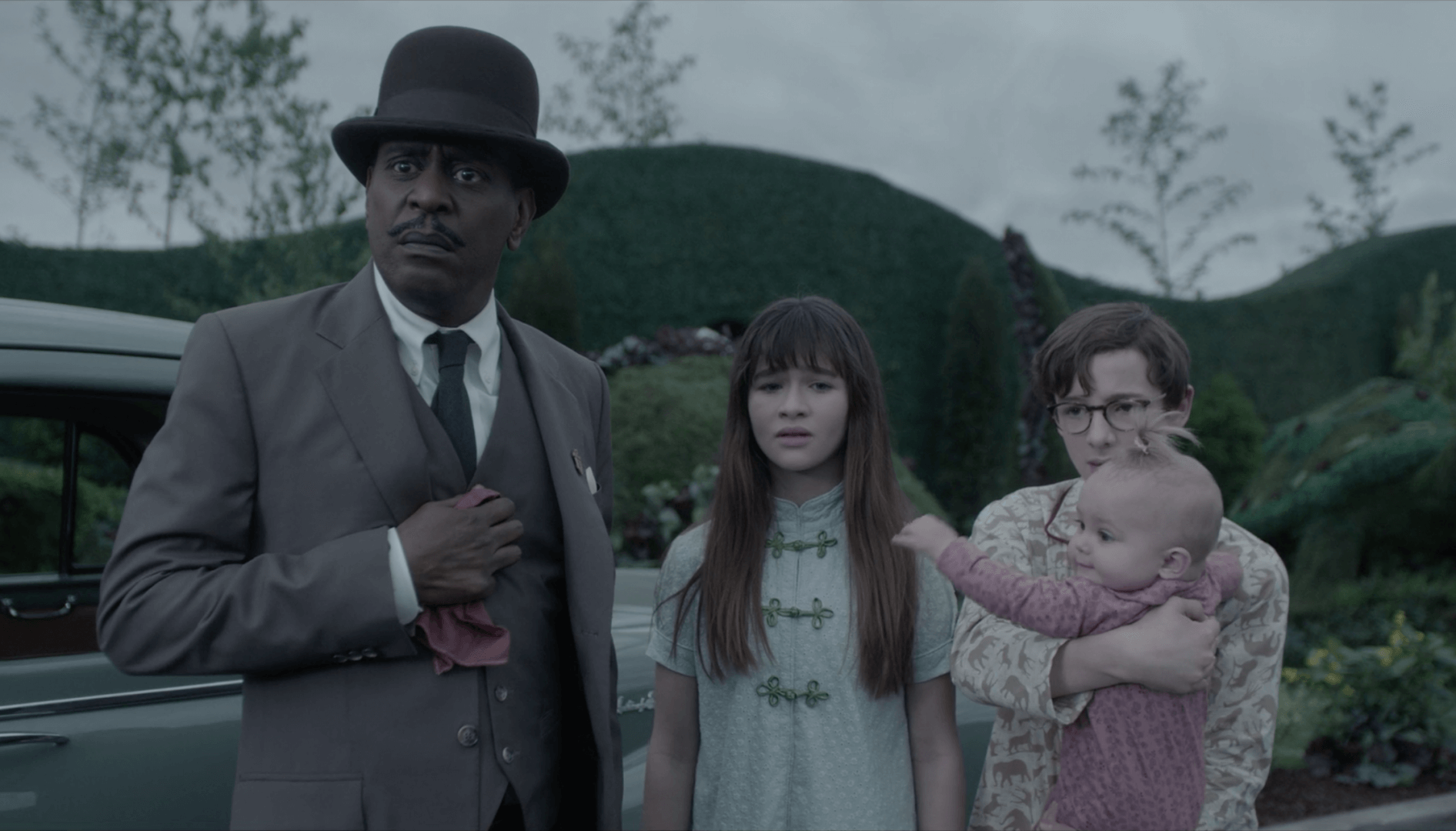
As far as the settings are concerned, though they are all bleak and gray, they came to life with spurts of vibrant color in all the right moments, whether through the characters’ clothes or even flowers on a nearby tree. That being said, even though each episode was in a different place, they were all similar to the previous setting. There was little diversity in tone or aesthetic across the eight episodes, whether we were in a dirty house or a grimy mill it all felt the same. The tone was something that could subconsciously make you feel as grim as the Baudelaire orphans’ present situation, especially if you are binge-watching the episodes.
A Series of Unfortunate Events is definitely a win for Netflix. Each episode was interspersed with smart humor, creativity, and dark whimsy that won’t be soon forgotten. The season didn’t end on a typical cliffhanger since we know exactly where the Baudelaires went next; but rather the ending allowed for a smooth transition into season two and left fans and new devotees with much to look forward to when it starts.

There is still a large chunk of story left in the Baudelaire saga that the writers need to tackle. If season two follows the same format of the first, then we can expect to see the next four books- The Austere Academy, The Ersatz Elevator, The Vile Village, and The Hostile Hospital- play out across eight episodes. The Netflix adaption was wonderful to finally watch and the second season looks even more promising. It is highly recommended for any fan of the books and anyone who is even remotely curious about the Baudelaires’ grave misfortune.
Also, good luck shaking the theme song from your head.
[review]







